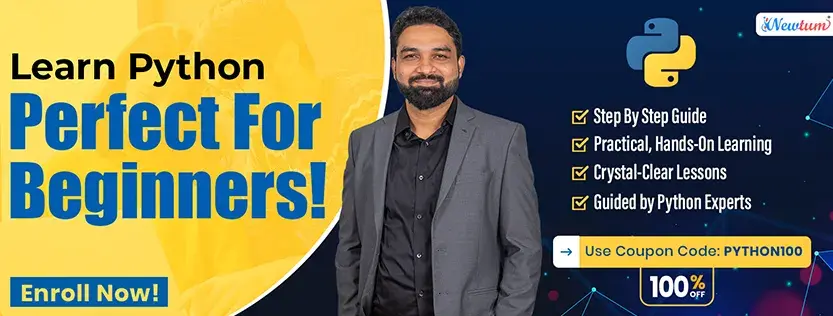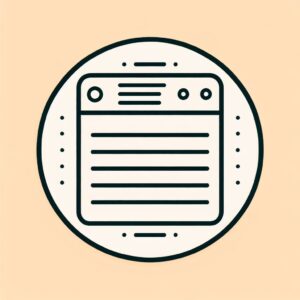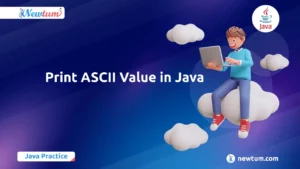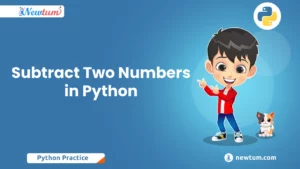In this article, we will take a look at the ten best Python books for programmers to learn Python coding in 2023. These books are designed to help you master Python’s syntax, programming concepts, and best practices.
Python’s popularity as a programming language has soared over the years due to several factors that make it highly favored among developers and programmers. Here are some key reasons behind Python’s widespread appeal:
- Readability and Simplicity
- Versatility and Flexibility
- Rich Ecosystem and Libraries
- Cross-Platform Compatibility
- Strong Community and Support
Criteria for selecting the best Python books
In this section, we will discuss the criteria used to select the best Python books for programmers. These criteria are important to ensure that the books selected are of high quality and offer a comprehensive and effective learning experience for readers. Some of the factors considered include
- Author Expertise: The books selected are written by authors who are experts in Python and have a deep understanding of the language.
- Clarity and Coherence: The books must be easy to read and understand, and the material must be presented logically and coherently.
- Content Coverage: The books must cover a wide range of topics related to Python programming, including fundamental concepts, advanced features, and real-world applications.
- Practicality: The books must offer practical exercises and real-world examples that help readers apply what they have learned.
- Accessibility: The books must be accessible to both beginner and advanced programmers, with clear explanations of complex concepts and terminology.
By considering these criteria, we can ensure that the books selected offer a comprehensive and effective learning experience for programmers of all levels.
Learn How to Generate Random Numbers in Python, Now!
Best Books on Python for Beginner Programmers
1. Python Crash Course:
| Overview | |
| Author | Eric Matthes |
| Publisher | No Starch Press, US |
| Edition | 2nd Edition |
| Rating | 4.7 |
| Price | Check Now |
Summary: Python Crash Course is a comprehensive guide for beginners to learn the Python programming language. The book begins with the fundamentals of Python and progresses to more advanced topics such as data visualization, web development, and game development.
The book is split into two sections. The first section introduces the Python programming language’s fundamentals, such as variables, data types, loops, functions, and file handling. The second section delves deeper into advanced topics like the Django web framework, data visualization with Matplotlib, and game development with Pygame.
One of the book’s advantages is its hands-on approach. To help readers practice and reinforce what they have learned, the author provides numerous coding examples and exercises. The book also includes projects that are intended to help readers apply their newly acquired skills in real-world scenarios.
The book is suitable for beginners with no programming experience, using clear language, well-organized, and detailed explanations for easy understanding and application.
2. Automate the Boring Stuff with Python:
| Overview | |
| Author | Al Sweigart |
| Publisher | No Starch Press |
| Edition | 2nd Edition |
| Rating | 4.6 |
| Price | Check Now |
Summary: Teaches Python programming through practical examples and demonstrates how Python can automate mundane tasks.
The book focuses on practical examples and real-life scenarios where Python can be employed to streamline everyday tasks, such as manipulating files, working with spreadsheets, scraping web data, and interacting with APIs.
The author takes a hands-on approach, guiding readers through step-by-step instructions and providing clear explanations of the Python code used. The book covers essential programming concepts, including variables, loops, functions, and conditional statements, making it accessible to those with little or no prior programming experience.
Throughout the book, Al Sweigart demonstrates how Python can save time and effort by automating tasks that would otherwise be tedious and repetitive. By following the examples and exercises, readers gain a solid understanding of Python’s capabilities for automation and learn to create their own scripts and programs.
“Automate the Boring Stuff with Python” is known for its engaging and accessible writing style, making it a popular choice among beginners seeking a practical introduction to Python programming. Whether you want to automate data entry, manipulate files, or interact with APIs, this book provides a valuable resource to empower you with the skills to simplify your daily tasks using Python.
3. Learning Python:
| Overview | |
| Author | Mark Lutz |
| Publisher | 5th |
| Edition | 5th Edition |
| Rating | 4.5 |
| Price | Check Now |
Summary: A comprehensive introduction to Python programming, covering topics ranging from basic syntax to advanced concepts. This book is intended for beginners and covers Python from the ground up, beginning with basic syntax and gradually progressing to more advanced topics.
The book offers a systematic approach to learning Python, covering fundamental concepts like variables, loops, functions, and object-oriented programming.
“Learning Python” explores Python libraries, modules, file handling, exception handling, and database management, providing exposure to various tools and resources.
4. Python for Data Analysis:
| Overview | |
| Author | Wes McKinney |
| Publisher | O’Reilly |
| Edition | 3rd Edition |
| Rating | 4.6 |
| Price | Check Now |
Summary: Focuses on using Python for data manipulation, analysis, and visualization with popular libraries like Pandas and NumPy.
Wes McKinney’s Pandas library teaches data structures, transformation, statistical analysis, and visualizations with clear explanations.
Introduces Python data analysis concepts, covering wrangling, munging, reshaping, aggregation, time series, missing data, and visualization techniques.
“Python for Data Analysis” is a crucial resource for beginners and experienced programmers, enabling valuable insights from data analysis tasks.
5. Python Pocket Reference:
| Overview | |
| Author | Mark Lutz |
| Publisher | O’Reilly |
| Edition | 5th Edition |
| Rating | 4.5 |
| Price | Check Now |
Summary: A handy reference guide that provides concise explanations and examples of Python syntax and libraries.
The book covers a wide range of topics, including Python syntax, built-in functions, data types, control structures, modules, and more. It provides quick and concise explanations of Python concepts and features, making it ideal for both beginners and experienced developers who need a quick refresher or lookup resource.
In addition to covering core Python language features, the book also includes references to commonly used libraries and modules, such as DateTime, math, os, and sys, among others. It helps programmers find the right functions and methods for specific tasks, saving time and effort.
6. Head First Python:
| Overview | |
| Author | Paul Barry |
| Publisher | Shroff/ O’Reilly |
| Edition | 2nd Edition |
| Rating | 4.3 |
| Price | Check Now |
Summary: Uses a visually engaging approach to teaching Python, making it accessible for beginners and covering essential programming concepts. The book covers Python programming basics, advances to file I/O, databases, web development, and graphical user interfaces.
Head First Python emphasizes practical examples, real-world scenarios, and coding challenges, encouraging readers to apply knowledge and understand underlying concepts.
Head First Python offers interactive, visually stimulating learning for beginners, providing a solid foundation for understanding and applying Python in various domains.
7. Python Programming: An Introduction to Computer Science:
| Overview | |
| Author | John Zelle |
| Publisher | Franklin Beedle & Associates Inc. |
| Edition | 3rd Edition |
| Rating | 4.4 |
| Price | Check Now |
Summary: Introduces programming concepts using Python and includes exercises and examples to reinforce learning. The book covers the fundamental concepts of computer science, including problem-solving techniques, algorithms, data structures, and more.
John Zelle teaches Python syntax, control structures, functions, and object-oriented programming through clear explanations and examples.
The book emphasizes computer science principles, Python programming, and illustrative graphics for a solid foundation.
“Python Programming: An Introduction to Computer Science” is a valuable resource for beginners and self-learners seeking a comprehensive understanding of programming concepts.
8. Python Cookbook:
| Overview | |
| Author | David Beazley and Brian K. Jones |
| Publisher | O’Reilly Media |
| Edition | 3rd Edition |
| Rating | 4.5 |
| Price | Check Now |
Summary: Offers a collection of Python recipes and practical solutions for common programming tasks.
The book dives deep into various aspects of Python programming, offering solutions to common programming challenges. Each recipe presents a specific problem along with multiple approaches to solve it, providing valuable insights into Python’s versatility and best practices.
Topics covered in the book include data structures, algorithms, file handling, text processing, network programming, web development, concurrency, and more. It also explores advanced concepts like metaprogramming and decorators.
The authors, who are experienced Python developers, provide clear explanations and code examples, making it easy to understand and implement the solutions. With its extensive range of topics and hands-on approach, “Python Cookbook” is a valuable resource for programmers seeking to expand their Python skills and build efficient, robust applications.
9. Think Python: How to Think Like a Computer Scientist:
| Overview | |
| Author | Allen B. Downey |
| Publisher | Shroff/ O’Reilly |
| Edition | 2nd Edition |
| Rating | 4.4 |
| Price | Check Now |
Summary: Introduces Python programming from a problem-solving perspective, emphasizing computational thinking.
The book covers essential programming concepts such as variables, expressions, functions, loops, and conditionals. It emphasizes computational thinking, helping readers break down complex problems into smaller, more manageable components.
Through a combination of explanations, examples, and exercises, “Think Python” provides hands-on learning opportunities for readers to apply their knowledge. The book also introduces debugging techniques and explores the principles of software development.
What sets “Think Python” apart is its accessibility and clarity. Downey’s writing style is concise and straightforward, making complex concepts easier to understand for beginners. The book’s interactive approach encourages active learning and problem-solving skills, preparing readers to tackle real-world programming challenges. Whether you’re new to programming or transitioning to Python, “Think Python” serves as an excellent resource to develop your programming mindset and skills.
Get Complete Python Interview Questions and Answers, here!
10. Python Playground:
| Overview | |
| Author | Mahesh Venkitachalam |
| Publisher | No Starch Press, US |
| Edition | 1st Edition |
| Rating | 4.5 |
| Price | Check Now |
Summary: Provides interactive Python projects and experiments to help beginners explore various aspects of programming and Python’s capabilities.
The book covers a wide range of topics, including graphics, games, simulations, and data visualization. Each chapter presents a specific project idea and guides readers through the process of implementing it using Python code. From creating digital artwork and interactive visualizations to building games and simulations, this book provides a diverse set of projects to help beginners solidify their Python skills.
What sets “Python Playground” apart is its focus on interactivity. The projects are designed to encourage experimentation and discovery, allowing readers to actively engage with the concepts and see the immediate results of their code. Through these hands-on experiences, learners can develop a deeper understanding of Python programming and gain confidence in their abilities.
Overall, “Python Playground” is an excellent resource for beginners who want to learn Python in a fun and interactive manner while building practical projects.
In this article, we have listed the top 10 Python books for programmers to learn coding in 2023. These books are suitable for both beginners and also for experienced programmers. They cover a wide range of topics, including data science, machine learning, web development, and game development. Each book has its unique approach to teaching Python programming concepts.
We hope that our comprehensive blog on “10 Best Python Books for Programmers in 2023” was helpful in the journey of finding the best books for learning Python as a beginner. Explore the Newtum official website for more interesting Python and coding-related courses and level up your coding skills with us!



